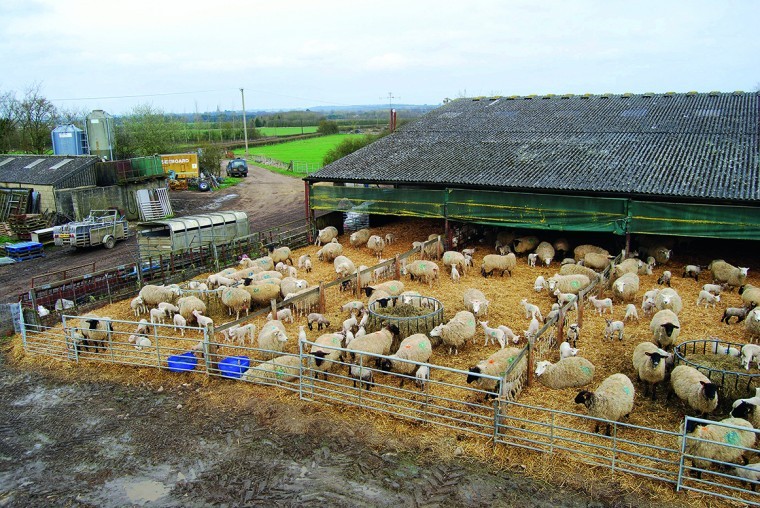Not far from the Cotswolds and their sheep flocks, Ducklington Farm is next to an Oxfordshire town famed for its blanket industry.
Witney – which is in the constituency of former Tory prime minister and MP David Cameron – had six blanket mills in the 1800s, all using wool from Cotswold flocks. For more than 300 years, Witney’s blankets were exported all over the world until the last blanket mill closed in 2002.
In the area around Ducklington Farm, there is more arable farming than sheep. But on the farm itself, sheep numbers gradually increased until the arable area was down to between 200 and 300 acres. “We had a combine and a sprayer,” said Randal Strainge, who runs the farm in partnership with his mother Stacey and father Edmund. “But in the end, it was not worth running the equipment. The contractor was doing it for a few years, and he was the only one making money out of it. So we put it down to grass.”
Although the sheep have done well, with Brexit looming, sheep prices falling and costs rising, Mr Strainge took the decision to have a flock reduction sale at the farm on the last weekend in March. His reasons for selling 700 ewes with between 1,200 and 1,300 lambs and between 150 and 160 Suffolk Cross Mule ewe lamb hoggs are compelling. One of the farm’s biggest cost burdens is renting grass, and the hope is that reducing numbers will cut back on this. Another cost is the land at Ducklington Farm, which is very wet clay – so Mr Strainge has to pay for most of the ewes to go away on to lighter, sandy land on dairy farms or turnips for five or six months each year.
“Very often it is May before it is dry enough to do anything out there,” Mr Strainge said. “From April until early May, it is very difficult for our lambs.” To take some of the pressure off, he is reducing the lambing in February and concentrating more on April. Even then, the economics are questionable. “Spring lambs need to be making well over £100 a head, and I don’t think we are going to see that.”
Brexit has not helped. “Brexit will make it easier for New Zealand and Australia to sell into this country and harder for us to export,” said Mr Strainge. At the moment, the Ducklington Farm sheep are slaughtered in a local abattoir run by Mutchmeats Ltd in Witney. From there, they go to Smithfield in London and some go to local butchers. Although they are not exported, Mr Strainge fears that Brexit could leave a lot of UK lamb trying to find buyers, and butchers will be tempted to buy the cheapest cuts from anywhere.
Mr Strainge was against Brexit because he knew leaving the European Union would upset sheep prices. In the short term, he was right: the price of February lambs sold immediately after the referendum went up, but the value of lambs he had been feeding heavily on creep before the referendum declined. “Perhaps in five years time we will be back to where we were again. But at the moment there is too much uncertainty about what will happen.”
<a href=”http://www.southeastfarmer.net/assets/flipbook/2017/SEF0417/SEF04Apr17.html#p=16>Click here to read the full visit




